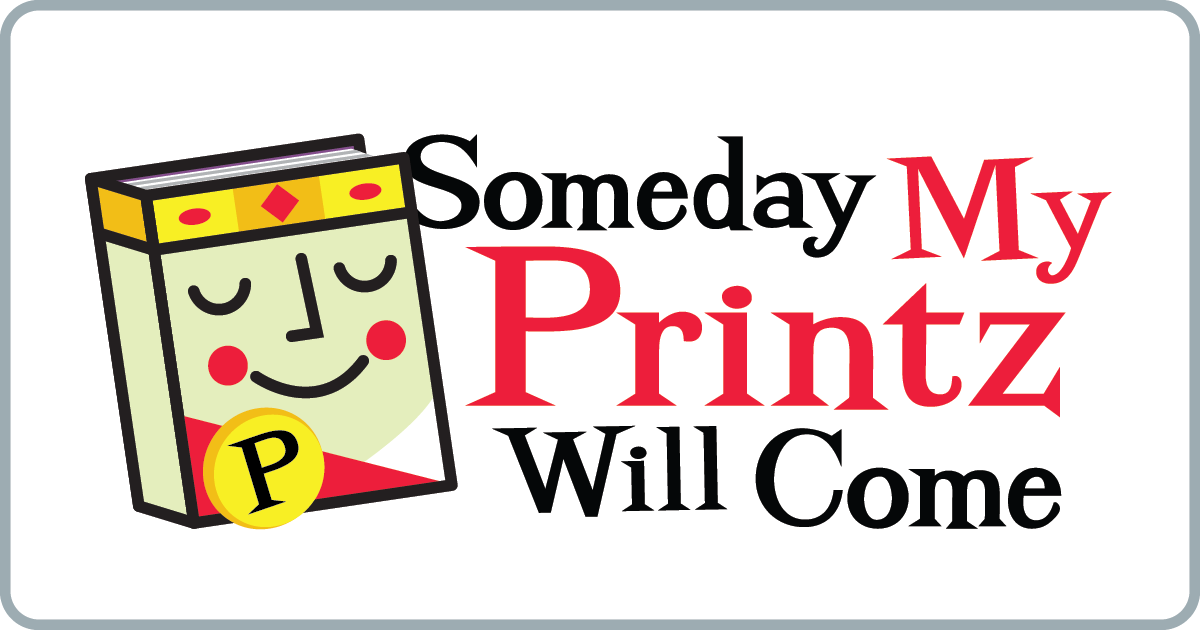SCROLL DOWN TO READ THE POST
No Crystal Stair: Significant & Worthy, but…

No Crystal Stair: A Documentary Novel of the Life and Work of Lewis Michaux, Harlem Bookseller, Vaunda Micheaux Nelson, with artwork by R. Gregory Christie
Carolrhoda Lab, an imprint of Carolrhoda Books, February 2012
Reviewed from final copy (courtesy of my public library)
Vaunda Nelson, author of the Coretta Scott King Award-winning Bad News for Outlaws: The Remarkable Life of Bass Reeves, Deputy U.S. Marshal, has produced a truly significant work of documentary fiction in No Crystal Stair. It is particularly noteworthy in the categories of accuracy, story, theme, and illustration, but is shaky in terms of voice and style. Voice is especially important to me — a dealbreaker, in fact — so while I can see it as a nominee, I doubt it will make the Final Five when it comes time to vote.
ADVERTISEMENT
ADVERTISEMENT
First, the good (and there is a lot of good here):
Accuracy: Researched over a period of 15 years and meticulously sourced — if you are looking for menschy examples to share with students or patrons of how to document the research process, let this book be in your Top 5 list — this book does a tremendous job of offering an alternate route into the story of the struggles of black people to find a place of respect in 20th century America. Every American student learns about Martin Luther King, Jr. and Malcolm X, and after reading this book, I hope that more of our students will learn about The Professor and the significance of his National Memorial African Bookstore, which he operated for nearly 40 years in Harlem.
Story: What a tale! One of eleven surviving-to-adulthood children of a Virginia fishmonger and his wife (very sadly suffering from mental illness — it’s hinted, unsurprisingly, that the strain of raising such a large family in straitened economic circumstances contributed to Mary Michaux’s mental health issues), Lewis Michaux grows up strong-willed and fiercely intelligent. He manages to graduate from a life of petty crime to working for his preacher brother Lightfoot’s Church of God to eventually becoming an independent scholar and purveyor of books to Harlem’s (eventually the world’s) black community.
As Michaux’s advertising put it, his store was the “World History Book Outlet on 2,000,000,000 Africans and Non-White Peoples”, as well as “The House of Common Sense and the Home of Proper Propaganda.” Growing from an inventory of 5 books to over 200,000, including many rare and out-of-print titles, Michaux’s store eventually became a must-visit research center for community members and scholars alike. Along the way, Michaux met, worked with and influenced the thought and careers of notable 20th century black activists and writers including Malcolm X, Ashley Bryan and Nikki Giovanni.
Themes: Well, let’s start with the American Dream, for one. Here’s a dream realized! It’s also a dream deferred, though: Michaux, like his father before him and his brother Lightfoot alongside him, built a successful, influential business that effectively died with him. Within the context of Michaux’s like, Nelson canvasses some other interesting questions, including:
- What can one individual contribute to a community? Humanity as a whole? What does it take to make a significant contribution to the lives and development of others?
- What is the importance of education — at any and every age, and through any means available to us — to living a fulfilled and fulfilling life?
Illustrations: This book includes black-and-white photographs and scanned documents from Michaux’s life, as well as simple, stark pen-and-ink illustrations by Coretta Scott King Honoree R. Gregory Christie. I particularly love his bold use of line and the way he’s winnowed out the most important details to share visually with readers. His illustrations are almost like snapshots, pared down to their most essential elements, and they provide an energetic counterpoint to the historical photographs and documents. The interplay between the two types of illustration for the text makes sense, especially given Christie’s background as a successful designer of jazz LP covers.
It’s not all wine & roses with this book, though. My big issues pertained to pacing, voice, and characters.
ADVERTISEMENT
ADVERTISEMENT
The pacing here is plodding, and I get why: when writing history, it’s very difficult not to move directly from Point A to B to C. The problem with that approach is that it feels dull.
The voice is solid, but workmanlike. Michaux in his own words is full of a very appealing spark and gumption, but other than that, the only literary spark or lyricism is found in quotations from authors like Langston Hughes and Paul Dunbar. Nelson’s work doesn’t benefit from the comparison.
As for characters, Lewis and Lightfoot are the most three-dimensional, and understandably so, as their relationship and rivalry drive much of the narrative. As a reader, though, it’s bothersome that everyone else — both historical and fictional characters — recedes so far into the background, especially Lewis’ wife Bettie, who it’s clear was both a business partner and a helpmeet. Finally, this may be a matter of taste, but I strongly disliked the fictional characters, such as:
- Snooze, the high school dropout who Michaux influences to go back to school and make something of himself…through the magic of books!
- Calvin, the young boy upon whom Michaux bestows a book about medicine, who then grows up…to be a doctor!
- The White College Professor (he doesn’t get a name), who brings his students to Harlem and gets a mind-expanding earful from Michaux at the National Memorial African Bookstore. Nelson quotes Michaux here, and it’s easy to imagine him giving an unvarnished piece of his mind to a bunch of privileged white kids (just as it’s easy to imagine him encouraging neighborhood kids to aim high, using books as his weapon of choice — I mean, don’t we all? Clearly, Michaux was a very gifted Reader’s Advisor), but all of these made-up characters are so stock and so straight out of Central Casting that it strains the believability that Nelson has worked so hard & so well to establish. It’s jarring and undermines the literary quality of the book as whole.
On balance, I’d give this book a solid A for significance and worthiness, but a B-/C+ for literariness. Reviews from SLJ, The Horn Book, Booklist and Kirkus all focus primarily on Nelson’s impeccable research and the historical significance of No Crystal Stair. Kirkus’ starred review calls the mingling of voices “seamless […] a cohesive whole.” Obviously, I disagree, and disagree strongly with our fellow blogger Jonathan Hunt’s glowing assessment over at Heavy Medal (which I encourage you to read, of course!), wherein he calls it “a seamless marriage of plot, character, and style that pays homage to a man and his life by placing him squarely in the context of his times.” I leave it to you, dear readers, to parse these details and possibilities in the comments!
Filed under: Contenders, Fiction
About Sophie Brookover
ADVERTISEMENT
SLJ Blog Network
The 2025 Ninja Report: It’s Over
Book Giveaway: Foundling by D.M. Cornish
Ghost Town | Review
30 Contenders? Our Updated Mock Newbery List
Fast Five Interview: Riley Redgate
The Classroom Bookshelf is Moving
ADVERTISEMENT
ADVERTISEMENT







